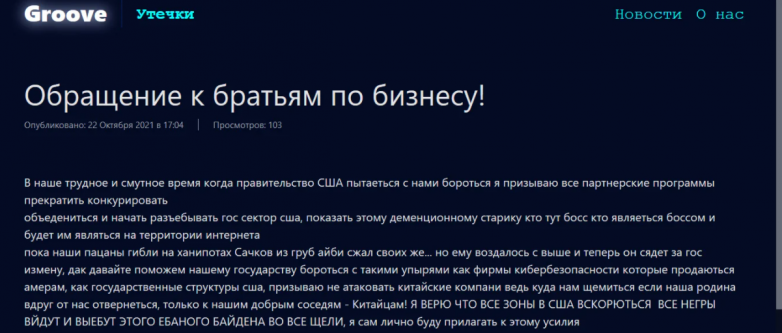

The MPD said it asked the FBI to investigate the "unauthorized access on our server." The department didn't respond to NPR's additional questions.īabuk was first detected earlier this year, according to McAfee, in its cybersecurity analysis of the group. It's unclear whether the Metropolitan Police Department paid the attackers to prevent the potentially sensitive information from getting out. In return, the group said, it wouldn't publicly release the records. The group, according to its messages online, demanded money from the police department. Unlike other ransomware attacks in which hackers lock access to computer systems and demand payment - Babuk goes a step further to extort its victims. "It's modern organized crime effectively, operating multinationally and often out of jurisdictions that offer a degree of protection from international law enforcement operations either due to inability, indifference or corruption," he told NPR.Ĭriminal groups taking part in this activity realized just how effective it is at generating revenue for them, Pritchard said.

The frequency of ransomware attacks on hospitals and other multinational corporations has increased in recent years, according to Rob Pritchard, the founder of.

Screenshots of alleged arrest records and internal memos were posted on Babuk's website and re-shared online. On a post made on its website, the group threatened to release information pulled from the department's systems if they were not paid an undisclosed amount. Potentially sensitive information from the Washington, D.C., police department was allegedly breached by a ransomware attack from a group seeking a payout.Ī group called Babuk claimed to be behind the attack. The Washington, D.C., Metropolitan Police Department was victim to an apparent ransomware attack Monday.


 0 kommentar(er)
0 kommentar(er)
